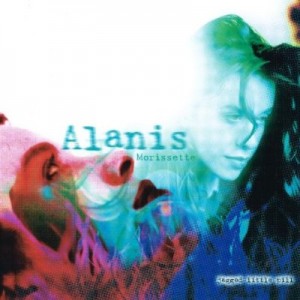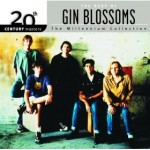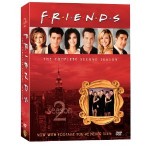 By Jae-Ha Kim
By Jae-Ha Kim
Chicago Sun-Times
July 2, 1995
Now is the summer of our discontent. That’s the only possible conclusion you can draw if you’ve been anywhere near a radio lately. Summer used to be the season of catchy, bouncy, bubblegum music.
Not this year. The airwaves of summer ’95 – suddenly, inexplicably – are clogged with hummable odes to depression, confusion, weird characters and questionable behavior.
The Beach Boys, who may have set the standard for summer fun-in-the-sun bubblegum songs, used to simply wish that all girls could be from California. This summer, Jill Sobule is giddy with delight that she got to kiss a girl.
Sobule’s not the only singer with an unlikely summer hit. There’s also Alanis Morissette’s in-your-face “You Oughta Know,” which is the first single from her debut CD, “Jagged Little Pill” (currently the No. 1 album by a new artist in Chicago and No. 2 nationwide, according to Soundscan).
Everclear’s “Heroin Girl” immortalizes a young woman with “two pierced nipples” who overdoses on drugs, and Sublime’s jaunty anti-rape, pro-woman song “Date Rape” is a favorite on alternative radio.
Soul Asylum has checked in with “Misery,” which has a chorus that’s as catchy as its lyrics are depressing, and Matthew Sweet apparently is just plain “Sick of Myself.”
Even Chris Isaak – the king of sweet sadness – displays some angry confusion on his current single “Somebody’s Crying.” In fact, Isaak’s entire album “Forever Blue” is a brooding reflection on breaking up with a longtime girlfriend.
Dark and/or dirty lyrics are nothing new in rock ‘n’ roll, a term that itself is slang for sex. But what is different now is that so many of these lyrically twisted and non-carefree songs are enjoying popularity on the radio this summer, a season usually top-heavy with frothy singles (think Bananarama, Richard Marx, Whitney Houston). Pop culture writer Matthew Rettenmund, who authored Encylopedia Madonnica, says the key is access.
“(Message) songs always have been around,” Rettenmund said. “But in the past, it was harder to come across them because there weren’t as many places for them to be played. Now we have so many different musical and video outlets, so people really have a better shot of getting these songs out to a larger audience.
“Kids are a lot more sophisticated today than in previous decades, contrary to what people might believe. If you look at the average teenager’s CD collection, it’s very diverse and not as uniform as in the past.”
Sure, the masses may love Bryan Adams’ “Have You Ever Really Loved a Woman?” which is celebrating its fifth week at the top of the Billboard pop singles chart, but that love song isn’t the tune kids are humming as they skate at the beach, wash their cars or hang out at the mall. There’s tuneful trouble bubbling everywhere beneath it on the charts.
“This is the first time I can think of in mainstream pop that so many dark songs have been getting heavy radio airplay,” said Mark Coleman, senior editor of Rolling Stone. “The resurgence of punk rock opened the door for raw guitars and lyrics, and I think this is the natural next stage.”
The resurgence of punk rock with groups such as Green Day, the Offspring and Bad Religion certainly paved the way for the popularity of songs like “Heroin Girl,” which relies more on a few striking chords and raw lyrics than any great style or overdubs to get its musical point across.
“The great thing about punk rock is that the lyrics are so honest and in your face that the listener notices it more,” said Bill Gamble, program director for WKQX-FM (101.1). “And a lot of (these bizarre summer songs) are descendants of punk music in that they have so much honesty that people can’t help but notice it. Some other bands may have the same message, but they might filter that message in metaphors.”
Leading the pack of this year’s unlikely summer hits is Morissette’s “You Oughta Know,” which she wrote about a former lover who left her for an older woman. In a gritty voice, she sings: “Is she perverted like me . . . ; I hate to bug you in the middle of dinner; It was a slap in the face; How quickly I was replaced; Are you thinking of me when you – – – – her?”
Whoa, Alanis! Who done you wrong?
“He was someone who I was in a relationship with a few years ago who was about 15 years older than me,” said Morissette, 21, who will sing that number Sunday at Taste of Chicago. “I’m not even sure he knows it’s about him. The fact that this song is taking off caught me by surprise. I didn’t think it was a Top 40 type of song. But people seem to really relate to it.”
Isaak agreed that a song can succeed if the audience is able to relate to it. “I think people have always had heartache and tough times. And hearing someone else sing about that makes you feel like you’re not alone on the island. Misery has been around for songwriters for a long time.”
On his record’s liner notes, Isaak includes a bitter “love” letter he wrote to his now insignificant other, but never mailed. The honesty of that note reveals even more about his state of mind than any of his lyrics.
“I think Chris’ songs are timeless in melody and lyrics,” said WXRT-FM (93.1) DJ Bobby Skafish. “But what is new is that he included this amazing, dark letter on his liner notes, which is almost like another song that ties the record together.”
The gritty realism these songs offer may be another reason why music fans have taken to heart such tunes as “You Oughta Know” and “Heroin Girl,” according to San Francisco-based psychologist Dorothy Isaak, who also happens to be Chris’ mom.
“I think (songs like these) are so popular now because young people are more socially aware than they’ve ever been,” she said. “These songs can be a positive outlet for kids, too, because it’s a part of reality. People do do heroin, or cheat on each other, or date people of the same sex. It’s a fact of life. People who live in a fantasy world of their own creation end up facing more pain when they’re hit with the sudden confrontation of reality.”
Which means what?
“Just enjoy the music,” Isaak said, laughing. “If parents have problems with the lyrics of certain songs, they would be doing more good by discussing the lyrics with their children than by censoring them and forbidding them to listen to the records.”
Or, as Morissette says, “Society in the past has been known to hide away the darker or sadder sides of things. It’s changing now so that you can be more forthright and honest. The floodgates are opening now, and artists are pouring through them.”
Summer songs may never be the same.





